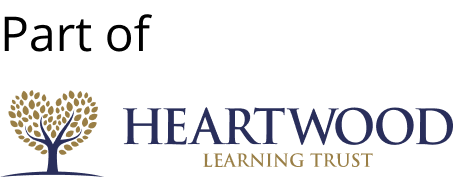Take a look through this page for a range of advice and guidance.
What is bullying?
Bullying is repeated and intentional intimidation carried out by a ‘more powerful’ person or group of people (older, bigger, more popular, etc) in order to cause physical or emotional hurt to their victim. Bullying is not just a phenomenon of students associated with the school who are bullying each other because bullying occurs on teachers and school support workers whether by students, parents or other staff.
| Types of Bullying | Examples of bullying behaviour |
|---|---|
| Physical | Pushing, hitting, kicking, spitting or threatening violence on the victim in school or after school. |
| Verbal | Name calling, spreading nasty rumours, cruel teasing or sarcastic comments. |
| Emotional | Humiliating, excluding, tormenting or use threatening gestures. |
| Racist | Put-downs directed to new or an established community group, using racist taunts, gestures or graffiti. |
| Sexual | Abusive sexual comments, unwanted contact, homophobic slurs or gestures. |
| Cyber/Online | Texting or phoning threats, setting up hate websites, posting images and images that belittle the victim or chat room misuse. |
At Vale of York Academy, we are committed to safeguarding our students and staff by providing a caring and friendly environment to work and learn. Bullying of any kind is not acceptable in school or around the school. If bullying does occur we expect all students who are victims or witnesses to the incident to report this to a member of staff so it can be dealt with promptly and effectively.
The school strives through our ethos and citizenship, PSHE, careers education programmes and by the school working within the Equality Act 2010 to prevent any instances of bullying before they occur by discussing the subject freely and openly. However, whenever a group of people are together there may be instances of bullying behaviour.
The school has a clear procedure so that such instances can be reported and dealt with effectively to help victims as well as the perpetrators of bullying.
If you’d like to report a safeguarding issue or have concerns regarding bullying, you can do so by clicking the link below. Anything you write will be sent anonymously.
A guide to Online Safety
With more social networking sites appearing online such as Instagram, Snapchat & Facebook it has never been more important to stay safe online and know the risks.
Social networking sites allow you to create an online persona and interact with friends and other members of the public.
Whilst most social networking sites allow you to protect your profile to just your chosen friends, many people decide to share their profile with anyone and everyone. These very popular sites offer a fantastic opportunity to interact with others in the electronic age but, sadly, a few individuals also use these sites for bullying and intimidation.
CEOP is an excellent site with advice for parents and should be a must read. See the link below for details.
Nothing is more important than knowing what your child is doing online and how they use chat, instant messaging, blogs, forums & social networking sites.
A great idea is to get them to show you how it all works and you shouldn’t be afraid to ask but don’t panic if you’re not quite sure, take a note of what programs and sites they use and do a bit of investigation later on.
Try setting up some rules which you are all agreed on, make sure that your child is happy with how to protect themselves when online and what they should do if they feel at risk.
If you are convinced that there is no alternative, you can install filtering software but be careful, there are often ways around these and your child may feel they have to hide what they are doing from you.
The school has extensive filtering solutions. Home solutions are generally not as advanced but that doesn’t mean they won’t work!
GetNetWise has a list of programs and information on how you can protect your children AND your computer. Top Ten Reviews has a side by side comparison of filtering software.
A huge problem for all filtering companies and one that has not been overcome is proxy avoidance sites.
These sites which can be set up very easily allow someone to bypass any filtering that is in place. The website ‘gets’ the banned site and displays it without actually sending you to the site itself. Unfortunately there are dozens of these sites appearing every week and all the filtering providers can only ban them when they are found; there isn’t a way to simply block them all up front.
If you have come across bullying on a site then you should report it to the site itself. Users of Bebo and MySpace for example, can remove messages themselves and prevent non-friends from leaving messages. Check out the help pages on the site concerned.
If it’s a bit more serious than that, you can report it to CEOP or the police if someone is in immediate danger.
CEOP stands for Child Exploitation and Online Protection Centre. This site is a member of the Virtual Global Taskforce and affiliated with the Serious Organised Crime Agency. It is an excellent resource for young people and adults with lots of information on how to stay safe, in control and reporting abuse.
We highly recommend you visit this site and spend some time reading through the Think U Know and Parents areas.
Please remember to talk to your child about your concerns and support them in staying safe and how to use the Internet wisely!
Everyone’s Invited
Over the last few months we have all seen the numerous media reports about the testimonies written on the Everyone’s Invited website.
The testimonies provided are incredibly upsetting and the behaviour that is described in these testimonies is completely unacceptable and in most cases would certainly constitute a serious sexual offence.
At the moment, the reports that are surrounding these testimonies are very much focused on the role of the school. These testimonies involve children and young people in schools and universities, and cover a wide range of circumstances and situations, often outside of educational settings, for example at parties. These testimonies have highlighted wider, deep-rooted issues in society, which need to be addressed by us all, including the community, schools and parents.
We need parents and carers to support us in talking to their children about how they behave towards others and how they can keep themselves safe outside of school and the home, both online and off.
Within our Trust and as a school, we recognise our role in keeping children and young people safe, of instilling good values in young people and respect for one another and of being safe places for young people to seek support and guidance.
Our school is committed to ensuring that all areas of safeguarding are constantly reviewed and amended, meeting all legislative and statutory requirements.
We have developed a positive, inclusive and supportive Relationship and Sex Education Curriculum, including provision during periods of remote education, to ensure that it engages students in age appropriate discussion within a safe environment. In addition, robust policies and procedures are in place to handle any report of sexual violence or sexual harassment.
Fundamentally, an understanding for all pupils of healthy relationships, acceptable behaviour and the right of everyone to equal treatment helps ensure that pupils respect each other and go on to be understanding and kind adults. We explicitly teach respect, honesty, kindness and tolerance.
Useful Links
Online Safety
- CEOP – Child Exploitation and Online Protection Centre – a must read!
- Get Net Wise – get wise about staying safe.
- Bullying Information – What’s the Best Thing to Do About Bullies?
- Stay Safe Online – General Internet usage tips.
- Sorted – Keep your information secure online.
- CBBC Newsround – a bit more information for children and parents.



